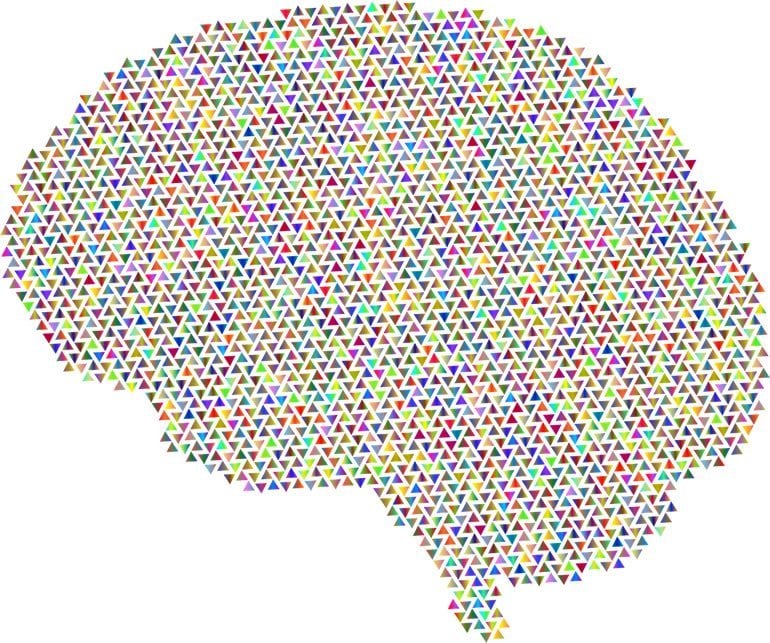Summary: Sibling study reveals moderate cannabis use during adolescence has adverse effects on cognitive function that cannot be explained by genetics or other environmental factors.
Source: CU Anschutz Medical Campus
A new study led by researchers from the University of Colorado School of Medicine compares adolescent siblings to determine the impact of early and frequent use of marijuana on cognitive function.
This study, published in the journal Addiction, contrasts with previous studies by finding that moderate adolescent cannabis use may have adverse effects that cannot be explained by the genetic or environmental factors that siblings may have in common.
“We wanted to expand our understanding of whether cannabis use is related to lower cognitive functioning,” said lead author Jarrod M. Ellingson, Ph.D., assistant professor of psychiatry at the CU School of Medicine. “There’s a large body of evidence that cannabis use is linked to cognitive functioning, but we know that cannabis use is not isolated from other important risk factors. That was the primary motivation behind this study, in which we compared siblings to account for many of these risk factors.”
Such possibilities include environmental risk factors, such as peer group influence, parental behavior, and socioeconomic status. In addition, by designing the study to look at siblings, researchers could consider whether genetic factors explain a shared risk for worse cognitive functioning and earlier or heavier cannabis use.
With this study, Ellingson and his colleagues were able to establish comparisons between siblings and then determine that differential levels of cannabis use were related to poorer cognitive functioning, particularly verbal memory.

The study participants were 1,192 adolescents from 596 families. They were primarily male—64 percent—and racially and ethnically diverse, with non-Hispanic whites accounting for 45 percent. The families were from metro Denver and San Diego. Drug use was assessed through clinical interviews and cognitive abilities were analyzed through a battery of neuropsychological tests. Two waves of data were collected. The first wave was from participants with an average age of 17 from 2001-2006; the second wave was collected from 2008-2013, with an average participant age of 24.
“More work needs to be done to determine how cannabis use is related to cognitive functioning and we hope that our study can help inform future study designs,” Ellingson said. “These studies are particularly important because cannabis is becoming more potent and more accessible as states legalize its recreational use.”
In the article, Ellingson and his co-authors state, “Due to changes in the legality of recreational and medical cannabis and widespread access in many states, valid empirical data must be available to inform policy and public health decisions, including how cannabis use may affect the developing brain.”
About this psychology research article
Source:
CU Anschutz Medical Campus
Contacts:
Press Office – CU Anschutz Medical Campus
Image Source:
The image is in the public domain.
Original Research: Closed access
“Familial factors may not explain the effect of moderate‐to‐heavy cannabis use on cognitive functioning in adolescents: a sibling‐comparison study” by Jarrod M. Ellingson et al. Addiction.
Abstract
Familial factors may not explain the effect of moderate‐to‐heavy cannabis use on cognitive functioning in adolescents: a sibling‐comparison study
Aims
To examine whether moderate adolescent cannabis use has neurocognitive effects that are unexplained by familial confounds, which prior family‐controlled studies may not have identified.
Design
A quasi‐experimental, sibling‐comparison design was applied to a prospective, observational study of adolescents with moderate cannabis use. Participants were recruited from 2001 to 2006 (mean age = 17 years). A second wave of data was collected from 2008 to 2013 (mean age = 24 years).
Setting
Two US metropolitan communities.
Participants
A total of 1192 adolescents from 596 families participated in this study. Participants were primarily male (64%) and racially and ethnically diverse (non‐Hispanic white = 45%). A sibling in each family was a clinical proband identified due to delinquent behaviors. Whereas prior family‐controlled studies have used samples of primarily infrequent cannabis users (mean = 1–2 days/month), participants here endorsed levels of cannabis use comparable to findings from epidemiological cohort studies (mean = 7–9 days/month).
Measurements
Semi‐structured clinical interviews assessed drug use, and a neuropsychological battery assessed cognitive abilities. Covariates included age at assessment, gender and alcohol use.
Findings
After correcting for multiple testing, a greater frequency and earlier onset of regular cannabis use were associated with poorer cognitive performance, specifically on tests of verbal memory. Further, after accounting for familial factors shared by siblings and alcohol use, poorer verbal memory performance was still associated with greater life‐time frequency of cannabis use at wave 1 [b = −0.007 (−0.002, −0.012), adjusted P = 0.036]; earlier cannabis use at wave 2 [b = −0.12 (−0.05, −0.19), adjusted P = 0.006; b = −0.14 (−0.06, −0.23), adjusted P = 0.006]; and greater frequency of past 6 months use at wave 2 [b = −0.02 (−0.01, −0.03), adjusted P = 0.002; b = −0.02 (−0.01, −0.03), adjusted P = 0.008].
Conclusions
Moderate adolescent cannabis use may have adverse effects on cognitive functioning, specifically verbal memory, that cannot be explained by familial factors.







